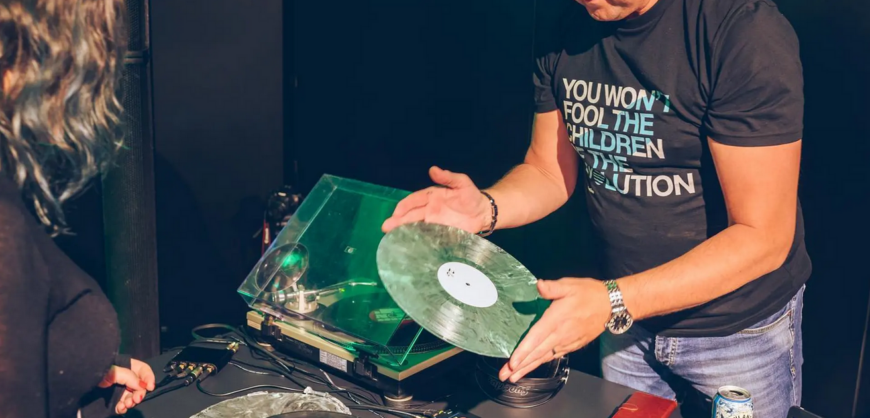Though streaming accounts for most of our music consumption, sales of vinyl records have been on the rise for a few years now. But the plastic used to create them is bad news for the enviro-conscious listener. A UK startup is hoping to change that by pressing for plant-based alternatives.
Nearly 50 million vinyl albums were sold in the US during 2023, an increase of 14.2% on the previous year. Evolution Music reckons that global production of around 180 million units at 140g standard grade would account for some 30,000 tonnes of PVC used in their manufacture every year.
In the great scheme of things that’s probably not a great deal of new plastic entering the marketplace, but it could be reduced to zero. That’s thanks to five years of research and development to create EvoVinyl, which is predominantly made from sugarcane (plus a few “natural mineral binders” and coloring), though future plans call for sourcing ingredients from organic, regenerative agriculture.
Budget Office of the Parliament: Predicts 2.5% growth under conditions
Other than a switch of base material, records can still be produced using existing equipment, but it could save manufacturers time and money thanks to the bioplastic compound requiring lower temperatures for pressing. “Testing to date has shown a 30% energy saving if a plant switches entirely to this product,”said company CEO of Evolution Music, Marc Carey. “And it takes 50% less time to press a record, so big energy savings are possible.”
Continue here: New Atlas




































